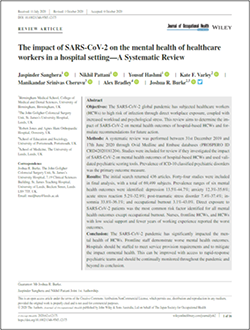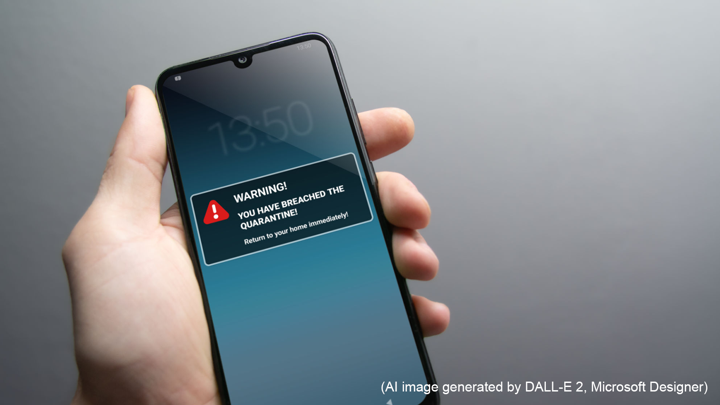#0095 The impact of SARS-CoV-2 on the mental health of healthcare workers in a hospital setting—A Systematic Review

How mentally healthy are hospital healthcare workers in the COVID-19 pandemic?
The year 2020 was marked by the spread of the COVID-19 pandemic, caused by the SARS-CoV-2 virus. As a result, healthcare workers all around the world faced unprecedented surges in hospital admissions and a threat of infection. Research has shown mental health issues among healthcare workers during previous epidemics, such as SARS or MERS, which were significantly smaller outbreaks than the current global pandemic. Should there be cause for concern now?
We set out to investigate via a comprehensive literature review. After a careful selection process, we scoured 44 studies looking at hospital records on staff mental health during the COVID-19 pandemic, including conditions such as depression, anxiety, insomnia, PTSD and burnout. With almost 70,000 subjects spread over three continents, we hoped to get a broad understanding of how hospital workers globally have suffered mentally.
Unsurprisingly, the COVID-19 pandemic has put significant strain on the mental wellbeing of healthcare workers, particularly those working at the frontlines. Nursing staff have been particularly affected, possibly because of their close contact with patients. The fear of being infected and in turn spreading the disease to other patients and friends or family, the increased workload caused by rising hospital admissions, and the stigmatization some healthcare workers face because of their close contact with COVID-19 patients, are all factors that potentially contribute to the degradation of their mental health. Workers with little experience and poor social support are also among the worst-off communities of health care workers mentally.
Although we could not conclusively say that these factors definitely caused poor mental health outcomes, they are associated and can be classed as risk factors. Based on these findings, hospitals can take a few steps to ensure the mental wellbeing of their frontline workers during future outbreaks.
We first recommend ensuring proper hospital staffing to ensure workers are not overloaded with patients and can take enough breaks and rest to prevent burnout and insomnia. We also suggest deploying psychiatric units to be able to quickly address emerging mental health issues and acting early to prevent more severe outcomes. In addition, it could be a good idea to set up a regular screening system to monitor mental wellbeing throughout this and future pandemics. Finally, it would be useful to adopt a more standardized framework to monitor mental health in healthcare facilities, which would make the issue easier to address at the policy level.

Link to the original journal article:
https://onlinelibrary.wiley.com/doi/10.1002/1348-9585.12175
Title of the paper:
The impact of SARS-CoV-2 on the mental health of healthcare workers in a hospital setting—A Systematic Review
Authors:
Jaspinder Sanghera, Nikhil Pattani, Manikandar S. Cheruvu, Yousuf Hashmi, Alex Bradley, Kate F. Varley, Joshua R. Burke




